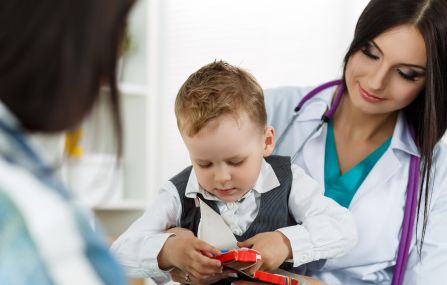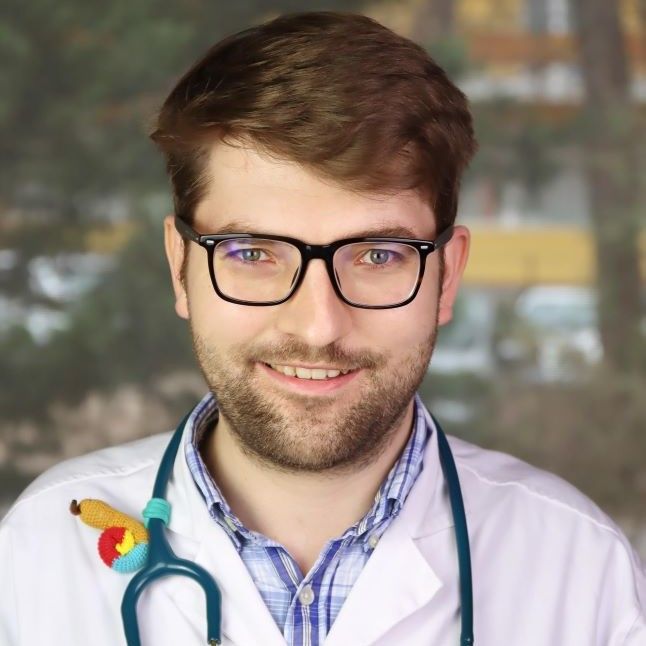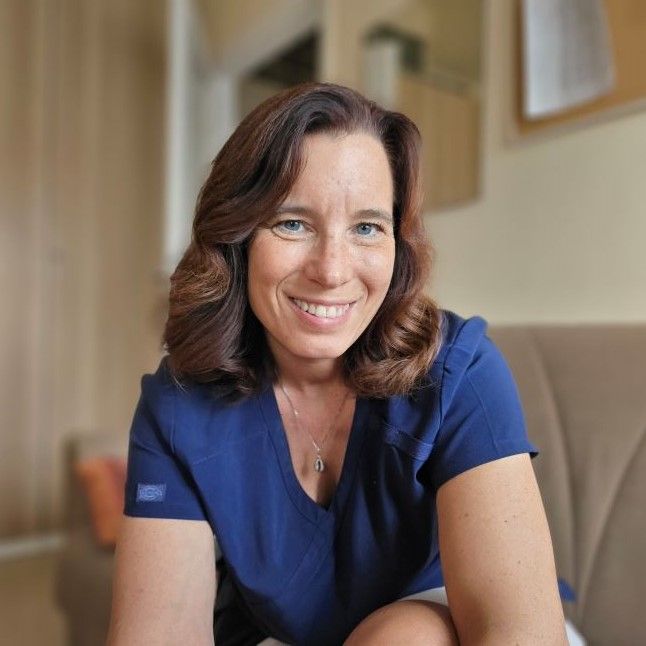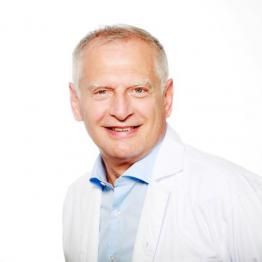 At Liv Duna Medical Center, our Department of Pediatrics is dedicated to providing comprehensive and compassionate healthcare for children from infancy through adolescence. Our pediatricians are experts in the physical, emotional, and social health of children, understanding the unique aspects of children's health and the importance of nurturing their growth and development.
At Liv Duna Medical Center, our Department of Pediatrics is dedicated to providing comprehensive and compassionate healthcare for children from infancy through adolescence. Our pediatricians are experts in the physical, emotional, and social health of children, understanding the unique aspects of children's health and the importance of nurturing their growth and development.
Pediatricians examine and treat congenital and acquired diseases that occur in infancy and childhood. Pediatrics encompasses an extensive and important area of the medical profession. A key characteristic is that the reactions of a child's body often differ from those typical in adults. Additionally, the observations of parents play a crucial role in diagnosing illnesses, especially at a young age. Certain stages of childhood have their specific diseases, and perhaps there is no other area in medicine where prevention plays such an important role: vaccinations, for example, serve this purpose.
At our pediatric clinics, we welcome patients in the following specialty areas:
Infant and toddler stomachaches, vomiting, and diarrhea can often put parents and pediatricians in difficult situations. These symptoms can be indicative of numerous diseases, and with timely treatment, we can prevent the development of more serious problems.
Here are the most common reasons why parents turn to a pediatric gastroenterologist in this age group:
- Poor development: inadequate weight gain, lack of appetite, infant regurgitation.
- Reflux (GERD): backflow of stomach content can irritate and/or damage the esophageal mucosa, thereby causing inflammation and erosion. In children, the symptoms are often not typically digestive but appear in different forms. The disease can be managed well with medicinal or non-medicinal treatment.
- Food allergy: the first symptoms can occur in infancy but can also develop later. Symptoms can include: diarrhea, vomiting, bloating, bloody stool, hives, dry skin, eczema, and occasionally runny nose, sneezing.
- Absorption disorder: a disease in any part of the intestinal system can cause this and it prevents the absorption of nutrients and water. This can trigger various food intolerances and allergies.
- Lactose intolerance: due to the deficiency or malfunctioning of the lactase enzyme, the body cannot digest lactose. The most characteristic symptoms of lactose sensitivity are bloating, increased gas production, excretion, diarrhea, abdominal cramps.
- Coeliac disease (gluten sensitivity): it is an inflammatory condition triggered by the body's sensitivity to gluten. It causes varying degrees of damage to the villi of the small intestine and subsequent absorption disorders.
Gastroenterological diseases in older children:
- IBS (Irritable Bowel Syndrome): characterized by recurring abdominal pain, diarrhea, constipation, and increased intestinal gas. The cause is unknown, but stress can play a role in its development.
- Chronic intestinal diseases: in addition to IBS, this includes conditions like ulcerative colitis and Crohn's disease, which are associated with inflammation.
- Liver diseases: one of the most common that can develop in childhood. The symptoms can be similar to those of the flu: chills, headaches, loss of appetite, sometimes diarrhea, abdominal complaints, jaundice.
In many cases, we encounter a variety of abdominal symptoms along with skin, respiratory, and other organ or system-wide, diverse symptom clusters. Often these symptoms are caused by improper diet and lifestyle, but it can also be due to stress.
With proper attention and necessary examinations, these diseases and conditions can be well-diagnosed and treated. Our pediatric gastroenterologists, Dr. Anna Gimesi, Dávid Horváth MD and Prof. Dr. András Arató warmly welcome their patients to their clini!
For the first appointment, Dr. Anna Gimesi conducts a medical examination supplemented with nutritional advice for the child aged 0-2 years and their parent, which lasts 40 minutes.
Dermatology involves the identification, examination, and treatment of diseases of the skin, hair, nails, and subcutaneous connective tissue. Symptoms on the skin often correlate with other diseases in the body, so it's important to pay attention to its signals. Dermatology also includes the important area of skin cancer screening and differentiating it from benign skin changes.
Process of Dermatological Examination
The examination starts with the collection of the patient's medical history: the doctor asks the patient in detail about his symptoms and previous diseases. Previous results and treatment sheets can provide useful information for the treating doctor, so it's important to bring them to the consultation. This is followed by a physical examination of the altered skin area. A dermatoscope, a special microscope equipped with a magnifier and internal lighting, can be used as an aid to the examination. After a thorough examination, the dermatologist makes a suggestion for treating the problem, or may recommend further examinations if needed. It can also happen that the skin symptoms point to a problem originating from an internal organ, in such cases the dermatologist helps decide which specialist to turn to.
Most common skin changes in children:
- Warts: A common type of warts is the common wart. This skin change can develop on the fingers, soles, limbs. Another type is the running wart, which usually appears on the face or limbs and is able to spread extremely quickly. The swimming pool wart is a virus-related change, which can cause itching.
- Moles: Their appearance, size, and color can vary. A part of the moles can turn into melanoma (malignant tumor), so it's important to regularly check them. If you notice any change in a mole, it's advisable to see a doctor as soon as possible.
- Rashes: There can be various causes of rashes appearing on the skin surface: it could be caused by a virus or food allergy, so a dermatological examination is essential for accurate determination and effective treatment.
- Eczema (dermatitis): Eczema is an inflammatory disease of the skin, accompanied by a dry, red, strongly itching sensation, then the formation of small blisters, and as a result of scratching, small wounds, scabs, and peeling may appear. Treating childhood eczema is crucial as it can prevent possible respiratory problems (asthma, hay fever, bronchitis) that may develop later on.
- Acne: Acne is a skin disease that develops in adolescence, during which the hair follicles - the pores of the skin - are clogged by dead skin cells and sebum - usually on the face. As a result, closed blackheads appear first, which over time evolve into purulent blisters. Without appropriate treatment, they can leave scars, but with dermatological care, permanent skin defects can be successfully prevented.
- Hair loss: The generally or patchy occurring hair loss can have various causes, it can be caused by metabolic disorder, fungal infection, bacterial focus in the body (such as tonsillitis), or iron-deficient anemia, but in every case, it's worth consulting a dermatologist.
Dermatological treatment options:
The treatment of dermatological changes can vary depending on their type and size.
- Diathermy: a tissue separation procedure and hemostasis based on the concentrated heat effect of electric current.
- Removal of skin lesions with a Volkmann's spoon: certain skin changes can be removed with a special sharp tool, the Volkmann's spoon.
- Cryo treatment: Cryotherapy is a freezing procedure in which the skin tissue to be removed is cooled to freezing with liquid nitrogen, causing it to die, allowing new, healthy skin to form in its place.
In the case of certain skin changes, moles, it may be justified to regularly check them and document them with photos. With the help of the photos, the changes of the mole can be tracked, so it can be recognized in time if there is a pathological change.
Pediatric otolaryngology specializes in diagnosing and treating diseases in the ear, nose, and throat area in children. This includes conditions like otitis media, sinusitis, tonsil and adenoid problems, as well as disorders related to the vocal cords and airways.
Pediatric surgery treats a wide range of surgical needs in children, including congenital developmental anomalies, injuries, tumors, and other surgical issues. Pediatric surgery provides personalized treatment tailored to the unique characteristics of a child's body and their individual needs.
Neonatology focuses on the period from the first days of infancy to the end of the first year, with special attention to the health maintenance and treatment of newborns. This field is critically important for addressing early-life health issues such as congenital anomalies, respiratory difficulties, feeding problems, and infections. You can view our specialists by clicking here.
PRESCRIPTION WRITING:
- We can only prescribe a prescription to a patient who has already visited our institution and for whom the prescription has been previously prescribed. For more information: https://dunamedicalcenter.org/en/news/we-help-you-not-to-be-without-medicine
- There is no extra cost for a prescription written during a specialised visit.
- The prescription(s) will be written during the doctor's office hours.
FOREIGN LANGUAGE DOCUMENT:
- All findings, results and outpatient forms are in Hungarian.
- If you would like it in English, you must notify us in advance, and there is an additional cost.

-
Child ear, nose and throat professor control examinationFrom 36 000 Ft
-
Child ear, nose and throat professor examinationFrom 45 000 Ft
-
Child gastroenterological control examinationFrom 33 000 Ft
-
Child gastroenterology professor control examinationFrom 36 000 Ft
-
Child gastroenterology professor examinationFrom 45 000 Ft
-
Child gastroenterology specialist examinationFrom 43 000 Ft
-
Children abdominal and pelvic ultrasoundFrom 37 000 Ft
-
Cost of prescription issuance outside a specialist consultationFrom 7 000 Ft
-
Paediatric specialist examinationFrom 37 000 Ft
-
Pediatric control studyFrom 32 000 Ft
-
Pediatric professor control studyFrom 36 000 Ft
-
Pediatric psychological control consultationFrom 22 000 Ft
-
Pediatric psychology consultationFrom 27 500 Ft
-
Pediatrics professor consultationFrom 43 000 Ft





